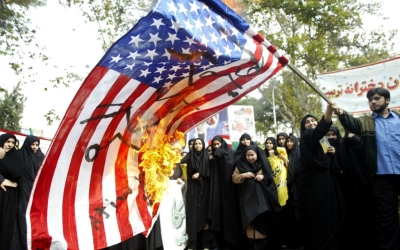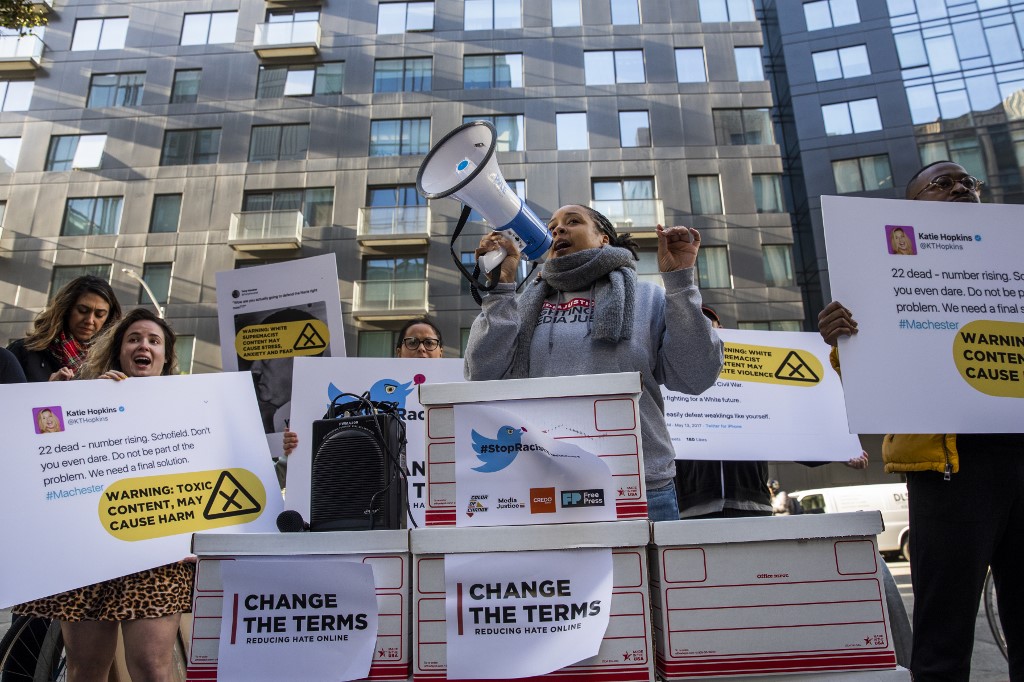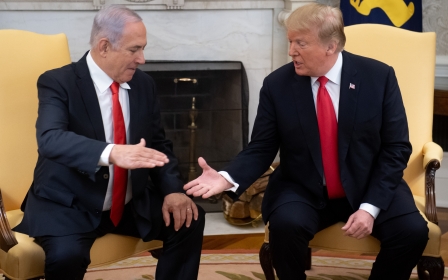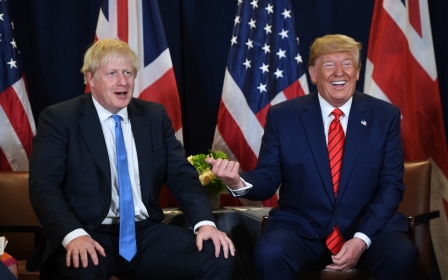How the US empire stole the left's ideas
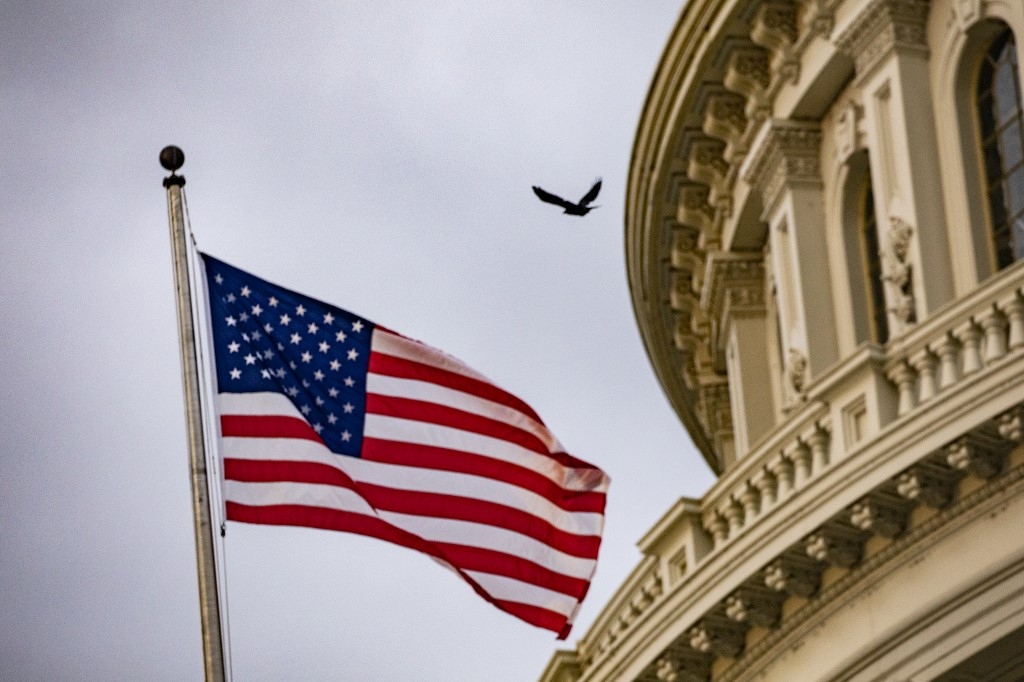
Since the 1980s and the expansion of the neoliberal order under former President Ronald Reagan to envelop the world, the US has redoubled its efforts to transform the meanings of key political concepts used by the global left against US power.
The aim has been to totally refashion world political culture, successfully achieved within the US but less so outside of it. While this project has effected major transformations inside the US since the dawn of the Cold War in the late 1940s, it has had only marginal effects outside the brainwashed US populace (with the exception of Britain, Germany, and less so France).
The 1980s project aimed to intensify these efforts on a global scale, especially after the fall of the Soviet Union. The transformation followed two strategies.
An era of Newspeak
The first was to empty concepts of their specificities and theoretical meanings, in order to disengage them from their association with US power and then move to apply them universally. George Orwell’s Newspeak is operative here.
New MEE newsletter: Jerusalem Dispatch
Sign up to get the latest insights and analysis on Israel-Palestine, alongside Turkey Unpacked and other MEE newsletters
Take the major example of the Marxist concept of imperialism, centrally linked since the 19th century to industrialising capitalist states in their profitable pursuit to extract the resources of other countries while dominating them economically, politically, socially and culturally.
By the 1980s and 1990s, some US nationalist pundits would admit that their country may well be imperialist, but they continued to apply the concept primarily to the Soviet Union, which Reagan, as much as Noam Chomsky, used to refer to as an “evil empire”.
The discourse of US and European power continues to represent white Europeans and Euro-Americans who murdered tens of millions of people around the world
Deliberately confusing a country’s hegemony over other countries with the concept of “imperialism”, the US began more recently to level charges of imperialism at post-Soviet Russia, China, and even Iran.
Yet, some academics are only concerned about US President Donald Trump’s transformation of the country’s political language, seemingly not aware of the larger US transformative project since the 1940s.
During the Soviet era, all Eastern European allies of the Soviet Union had the same - or a higher - per capita income as the Soviets, and were often subsidised by the Soviets, who imported their industrial goods and exported raw materials to them in a reverse imperialist fashion, yet this fact seemed irrelevant to these sophomoric accusations.
If countries under the yoke of US imperialism, whose per capita incomes are a fraction of the US, would see their incomes raised to the same or a higher level than that of the US, then one perhaps could speak of parity between alleged Soviet “imperialism” and the real US imperialism around the world. Touting the examples of high per capita income of the citizens of a few countries like Kuwait or Singapore (minus the large number of foreign workers in both countries whose income is significantly less), hardly proves the contrary.
Defining democracy
Another central leftist concept since the French Revolution is “democracy”. The US and its nationalist intellectuals shamelessly speak of the US as a democracy since 1776. Apparently, two centuries of colonial theft and physical and cultural genocide against Native Americans, a century of slavery followed by a century of racial apartheid, and a century and a half of denying women suffrage, are irrelevant to that definition.
While the US was indeed a master-race and master-sex democracy for that period, this is not what the word “democracy” means to the rest of the world, let alone to the rest of the American people excluded from said “democracy”.
It is true that between 1965 and 2001, one could describe the US as a moderately repressive, racialised and gendered “democracy” - but it has since reverted to being a highly repressive, racialised “democracy”.
Yet, the power of US extreme nationalism is such that even former President Barack Obama and former Secretary of State Hillary Clinton speak admiringly of “our founding fathers” and the notion that “we are the oldest democracy in the world” - one that excluded both of them ipso facto. This is tantamount to former president Nelson Mandela speaking of the founders of racist South Africa as the founding fathers of South African democracy, which “evolved” to include blacks after 1994.
That the discourse of US and European power continues to represent white Europeans and Euro-Americans who murdered tens of millions of people around the world, and enslaved tens of millions more and meted out to them the most barbarous forms of torture, as “civilized” - and to refer to the enslaved and subjugated populations of the world who struggle for liberation as “barbaric” - is part and parcel of the ongoing US project.
Condemning racism
Indeed, even terms such as racism - which, like imperialism, were connected to Western European and American political and economic power - were emptied of their meanings and applied universally. Suddenly, if a non-white person holds prejudicial views towards white Europeans and Americans, the person is labelled as “racist”.
But the point of white European and American racism is not merely about the horrifying, widespread, racially prejudicial cultures of these societies, but rather that this prejudice has always been anchored in political and economic institutions of power - institutions that deny people equal rights based on racial prejudice, including the right to work, housing, education, healthcare and other social services, and that discriminate against them in law, subjecting them to police repression, etc.
No non-white country or peoples have the ability to oppress white people as a group, even if they hold prejudicial views against them. While condemnation of racism has always been principally about institutions of power, the new imperial and neoliberal meaning of racism has reduced it to a mere personal prejudice.
Indeed, since the 1980s, some Arab, Israeli and Western intellectuals (including Sadiq Jalal al-Azm, Fawwaz Traboulsi, Avishai Margalit and Ian Buruma, among others) began to speak of “Occidentalism” as the reverse of “Orientalism”, as if there is a single Arab country that has powerful institutions infused with hatred of the West that it uses to oppress all Europeans, in the same manner as European imperialism institutionalised Orientalism through its colonial and imperial policies in the colonised Orient.
In making Occidentalism an indicator of prejudice against Westerners, these intellectuals posit Orientalism not as something anchored in the powerful imperial institutions that Edward Said analysed in his classic book, but simply as mere individual or even group prejudice, whose relationship to power is absolutely irrelevant.
Agency as collaborators
The second US strategy was to transform erstwhile leftist concepts, used to condemn US policies, against the left itself by appropriating them as official US principles. These include support for “civil society” and political “activism” in the Third World, support for the “agency” of racial minorities and women inside and outside the US, and favouring “revolutions” and “legitimate” governments over “foreign occupation” - unless it is the US or Israeli militaries doing the occupying.
Since the 1980s, thousands of US and European-funded non-governmental organisations subject to the political agendas of their funders have been transformed into local “civil society”, and their highly paid employees depicted as mere “activists”.
Additionally, talk of the “agency” of the oppressed began to be deployed in defence of those who espouse imperial and racist ideas against their own people - and whom the US chooses as spokespeople for them.
Questioning the new hegemonic meanings opens the questioner to all sorts of accusations, especially by social media conscripts of the new imperial culture
Thus, on the one hand, condemning the anti-Arab and pro-imperialist propagandist Fouad Ajami would be to deny him his agency, and attacking the black US Supreme Court justice Clarence Thomas for his neoliberal, racist views and legal decisions would be to deny him his agency, and so on.
On the other hand, for many human rights NGO operatives in the Third World, misrepresented as “activists”, agency should solely be attributed to those who claim to resist local institutions and political power and are supported in their endeavours by Western NGOs. Accusing those who collaborate with imperial institutions and NGOs of complicity and collaboration with imperialism would likewise be to “deny” them agency, when in fact it is to acknowledge their agency as collaborators.
At the same time, the agency of those who resist US imperialism in their countries is routinely denied by NGO “activists”, who dismiss them as mere “proxies” of alleged Russian, Chinese, or Iranian “imperialism”.
The discourse of 'legitimacy'
In the Arab press and televised media - owned almost exclusively by this or that Gulf regime or prince - this has become the operative discourse. Questioning the new hegemonic meanings opens the questioner to all sorts of accusations, especially by social media conscripts of the new imperial culture.
As for the discourse of “legitimacy”, we find the Palestinian Authority (PA) Fatah coup leaders who in 2007 took over the West Bank and removed the elected Hamas from government to be the “legitimate” party, while Hamas, who maintained its elected government in Gaza against the illegitimate coup leaders, is represented as the party that “wrenched” Gaza from the legitimate authority of the PA.
In Venezuela, the insignificant Juan Guaido became the country’s legitimate leader, while the actual elected leaders became “illegitimate” - and the elected president of Bolivia, Evo Morales, became illegitimate, while the US-supported coup leaders who ousted him from power were deemed legitimate.
The strategy to transform the meaning of political concepts includes words such as “revolution”, attributed to any mass demonstrations against a government that the US dislikes; “terrorism”, which describes all actions by Muslims targeting US interests, whether military or civilian, but not when white people commit them; and “ideology”, wherein anyone who advances criticism of US and Western imperial policy is “ideological”, whereas those who support them are “objective”, “pragmatic” and “moderate”.
The success of this US project can be measured by the number of turncoat intellectuals, in the US and across the globe, who now employ the US-imposed meanings and insist on labeling themselves “leftists”. It is the term “left”, in fact, that has perhaps undergone the most transformation.
“Leftist” has come to refer to all those who espouse the new US meanings of this old set of leftist vocabulary, while those who still insist on exposing this insidious US cultural project are condemned as “anti-leftist”, if not outright reactionary.
Welcome to the new imperial order.
The views expressed in this article belong to the author and do not necessarily reflect the editorial policy of Middle East Eye.
Middle East Eye delivers independent and unrivalled coverage and analysis of the Middle East, North Africa and beyond. To learn more about republishing this content and the associated fees, please fill out this form. More about MEE can be found here.



